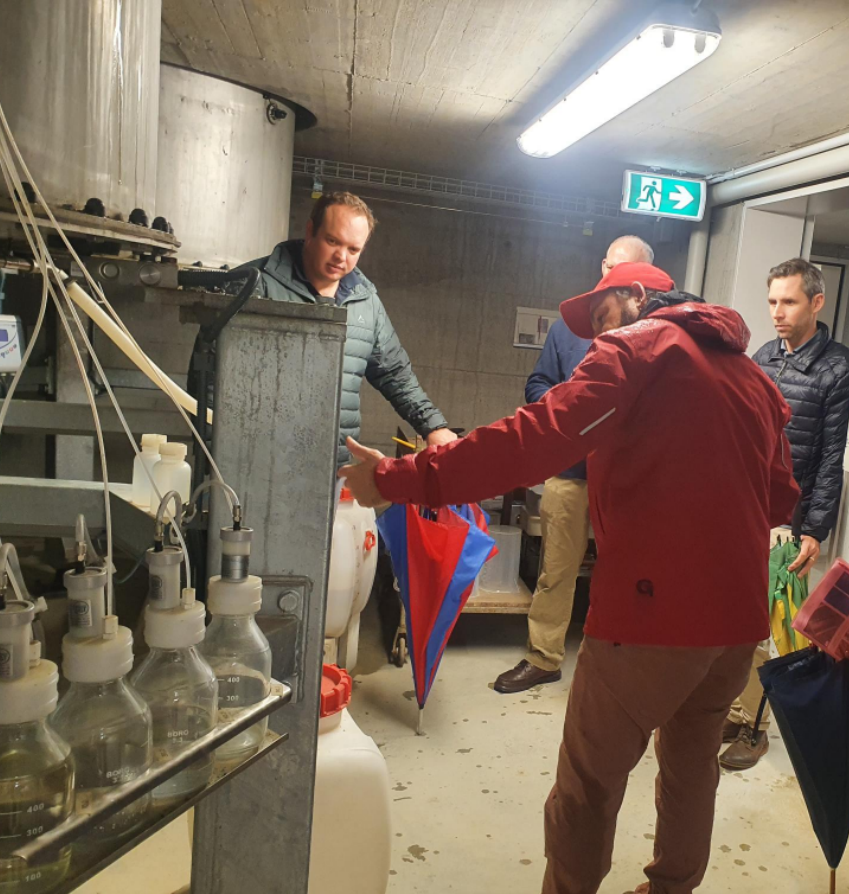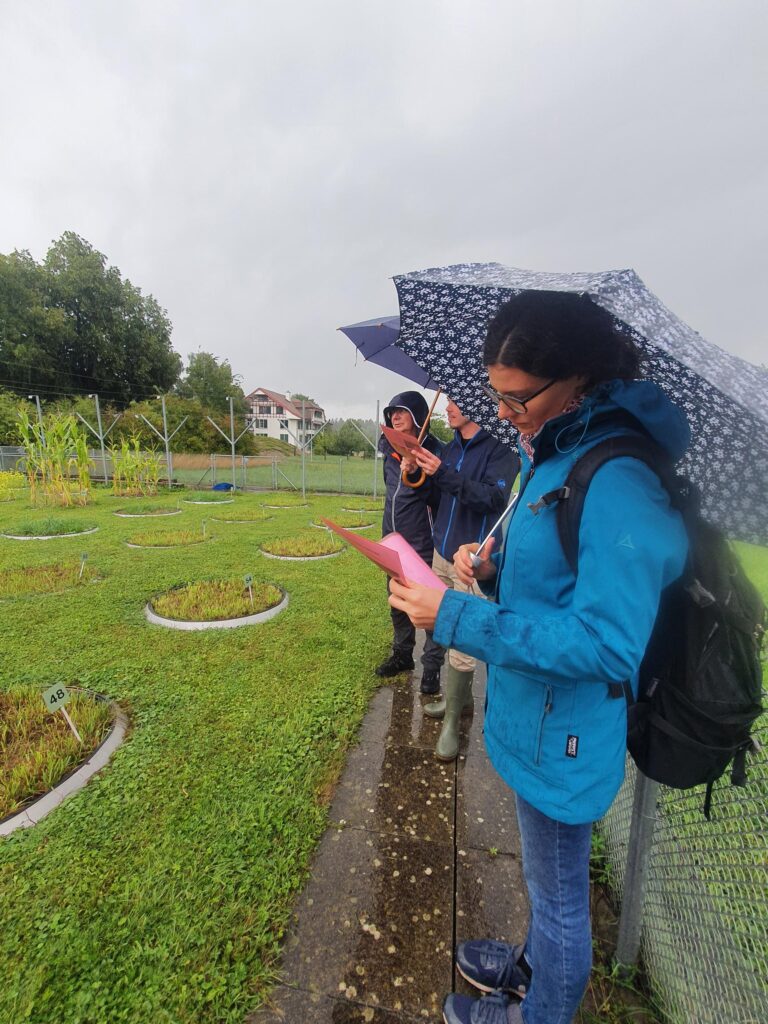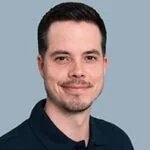It’s always an enlightening experience to witness firsthand the incredible research and innovation happening in the agricultural world. End of August 2023, Andermatt was granted an opportunity to visit Agroscope Reckenholz. Dr. Frank Liebisch, Head of the Water Protection Material Flows Research Group at Agroscope, kindly guided us through the educational facilities, shedding light on some of the most pressing challenges and advancements in the realm of agriculture.
Our journey began with a visit to the Lysimeter Facility, a critical space where the boundaries of agricultural science are continually pushed. Here, scientists endeavor to measure and understand seepage water and nutrient leaching, with a particular emphasis on nitrate leaching. Nitrate leaching has emerged as a prominent concern in contemporary agricultural studies. Researchers at the Lysimeter Facility investigate various factors that influence nitrate leaching, including the impact of slurry fertilization on grassland during the winter, different soil management practices, and nitrogen fertilization rates.


Lysimeter facility at Zürich Reckenholz (left: underground view; right: aboveground view)
As we ventured deeper into the world of agricultural research, we explored two long-term field experiments that have been instrumental in shaping the future of sustainable farming practices. First among them was the DEMO trial, established at Reckenholz in Zurich in 1989. The DEMO trial serves as a living demonstration of nutrient deficiency symptoms, such as nitrogen, phosphorus, and potassium deficiencies, in different crops grown in a rotating six-year crop rotation.

A Bird’s-Eye View of the DEMO Long-Term Field Trial (Picture by Agroscope)
Our journey through time also led us to the Zurich Organic Fertilization Experiment (ZOFE), which has stood the test of over 70 years. This field experiment is among the oldest in Switzerland and originally aimed to compare the impact of organic and mineral fertilizers on crop yields. Today, its focus has shifted toward soil ecology and climate-related matters. Researchers delve into topics such as nutrient use efficiency, long-term soil organic carbon development in agricultural systems, and the effects of different fertilization treatments.

A Bird’s-Eye View of the ZOFE Long-Term Field Trial (Picture by Agroscope)
ZOFE’s systematic block design features 12 fertilization treatments, ranging from unfertilized control to various organic, mineral, and combined fertilization treatments. The experimental plots follow an eight-year crop rotation, incorporating various crops and temporary ley periods. Regular soil sampling and analyses provide crucial insights into carbon, nitrogen, and macronutrient dynamics, supplemented by radiocarbon (14C) data and microbial biomass assessments. The crops’ main and by-products are thoroughly scrutinized to determine yields and nutrient content, enabling the calculation of nutrient removals and budgets.
One of the most thought-provoking findings we encountered during our visit was that, the yields in the ‘combined fertilized’ treatments were on par or even higher with those in the ‘mineral fertilized’ treatments. On the other hand, organic fertilization without the addition of mineral phosphorus and potassium resulted in lower yields.
With our visit to Agroscope Reckenholz we highlighted the importance of ongoing agricultural research and its role in addressing the sustainability challenges facing crop growing. It’s through collaborations and knowledge-sharing with institutions like Agroscope that we can continue to develop and promote sustainable agricultural practices that benefit both the environment and our communities.

